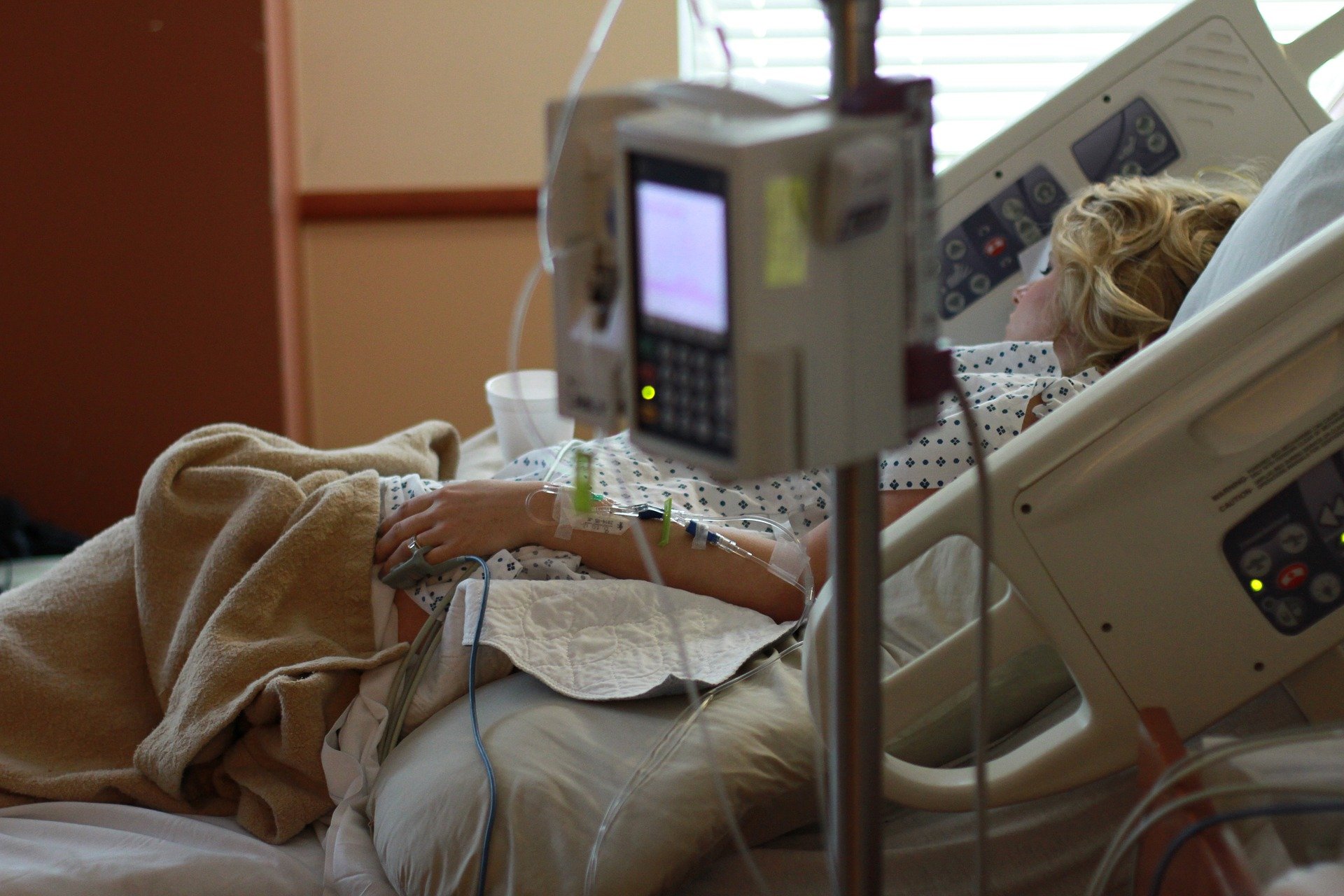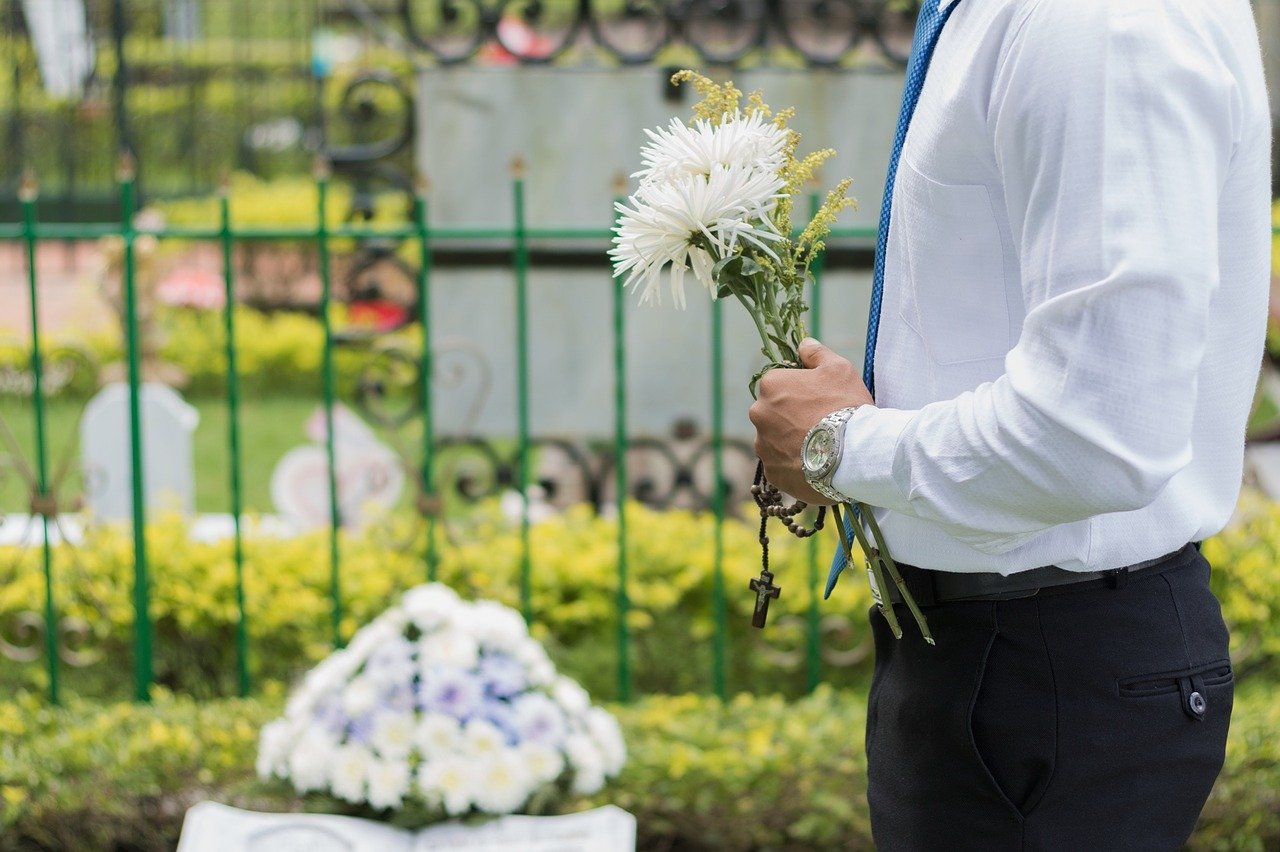Proper Korean Expressions at a Family Event (Part 2) Posted by Flying Oyster on Mar 29, 2021 in Culture, Idioms, Korean Language, Pronunciation, Vocabulary
Previously, we reviewed Proper Korean Expressions at a Family Event. Today, we are going to study what to properly say in more difficult circumstances, such as at 병문안 (byung-moon-an: visiting the sick) or a funeral.
I personally think that many Korean expressions that are commonly used at 경조사 (kyung-joh-sah: a family event), particularly in unfortunate circumstances, can be difficult to learn because we don’t use these phrases often. Another fact about them is that these expressions contain a few advanced levels of vocabulary.
병문안 (byung-moon-an: visiting the sick)
First, let’s look at some commonly used terms when you visit a sick person.
- 편찮다 (pyun-chan-tah: an honorific version of a verb, 아프다 (ah-poo-dah: sick, unwell)
- 소식 (soh-sik: a piece of news)
- 하루빨리 (ha-roo-bbal-li: immediately)
- 건강 (gun-gang: health, wellness)
- 병환 (byung-hwan: an honorific version of 병 (byung: sickness)
- 속히 (sok-hi: soon, quick)
- 낫다 (nat-dah: recover, get cured)
- 모습 (moh-sup: appearance, figure, form)
- 쾌차 (kwae-cha: complete recovery, restoration)
- 편찮으시다는 소식을 들었습니다. (I heard that you are sick.)
- 하루빨리 건강을 되찾으시기 바랍니다. (I wish you to recover your health quickly.)
- 병환이 속히 나으시어 건강한 모습으로 뵙기를 기원합니다. (I hope to see you healthy after recovering quickly.)
- 하루 빨리 쾌차하시기를 바랍니다. (I wish you completely recuperate without any delay.)
장례식 (jang-rye-sik: funeral)
Let’s look at other Korean expressions at a 장례식 (jang-rye-sik: funeral).
- 뜻밖의 (ttu-ppa-ggae: unexpected, unanticipated)
- 비보 (bi-bo: sad news)
- 슬프다 (seul-peu-dah: sad, mournful)
- 금하다 (geum-hah-dah: control, prohibit)
- 조의 (jo-eui: condolence)
- 고인 (goh-in: the dead, the deceased)
- 명복 (myeong-bok: happiness in the other world, heavenly bliss)
- 빌다 (bil-dah: pray)
- 삼가 (sahm-gah: respectfully, reverently)
- 유덕 (yoo-duk: posthumous influence)
- 후세 (hoo-seh: future generation)
- 이어지다 (ee-uh-ji-dah: be connected, last, continue)
- 빛나다 (bit-nah-dah: shine)
- 애석하다 (ae-suk-hah-dah:pitiful, unfortunate)
- 사망 (sah-mang: death, passing)
- 귀하 (gwui-hah: sir, Mrs, Mr, dear)
- 심심한 애도 (sim-sim-han-ae-doh: deep and profound condolences)
- 위로 (we-roh: consolation. comfort)
- 부득이한 (boo-deuk-ee-han: unavoidable)
- 사정 (sah-jeong: circumstances)
- 조문 (joh-moon: eulogy)
- 부고 (boo-go: an obituary)
- 장례 (jang-rye: a funeral)
- 참석 (cham-suk: attendance, presence)
- 뜻밖의 비보에 슬픈 마음 금할 길 없습니다. (I can’t stop being sad over the unexpectedly sad news.)
- 조의를 표하오니 고인의 명복을 빕니다. (Please accept my condolences, as I have many fond memories of the deceased.)
- 삼가 조의를 표하오며 고인의 유덕이 후세에 이어져 빛나기를 빕니다. (I express my sympathy/condolences respectfully as I wish posthumous influences of the deceased will be continued to future generations.)
- 애석하게 사망하였다는 가슴 아픈 비보를 접하고 귀하께 심심한 애도의 뜻을 표합니다. (I express deep and profound condolences as I hear the sad news of this unfortunate death.)
- 본인이 어떠한 위로의 말을 드린다해도 보잘것 없겠지만 삼가 위로의 말씀을 올립니다. (Although I understand words can’t console your sadness, I wish my deep and profound condolences could reach your heart.)
- 부득이한 사정으로 조문치 못하여 죄송합니다. (I apologize that I couldn’t be present at the funeral due to unavoidable circumstances.)
- 삼가 명복을 빕니다. (I respectfully wish happiness in the other world for the deceased.)

Build vocabulary, practice pronunciation, and more with Transparent Language Online. Available anytime, anywhere, on any device.





